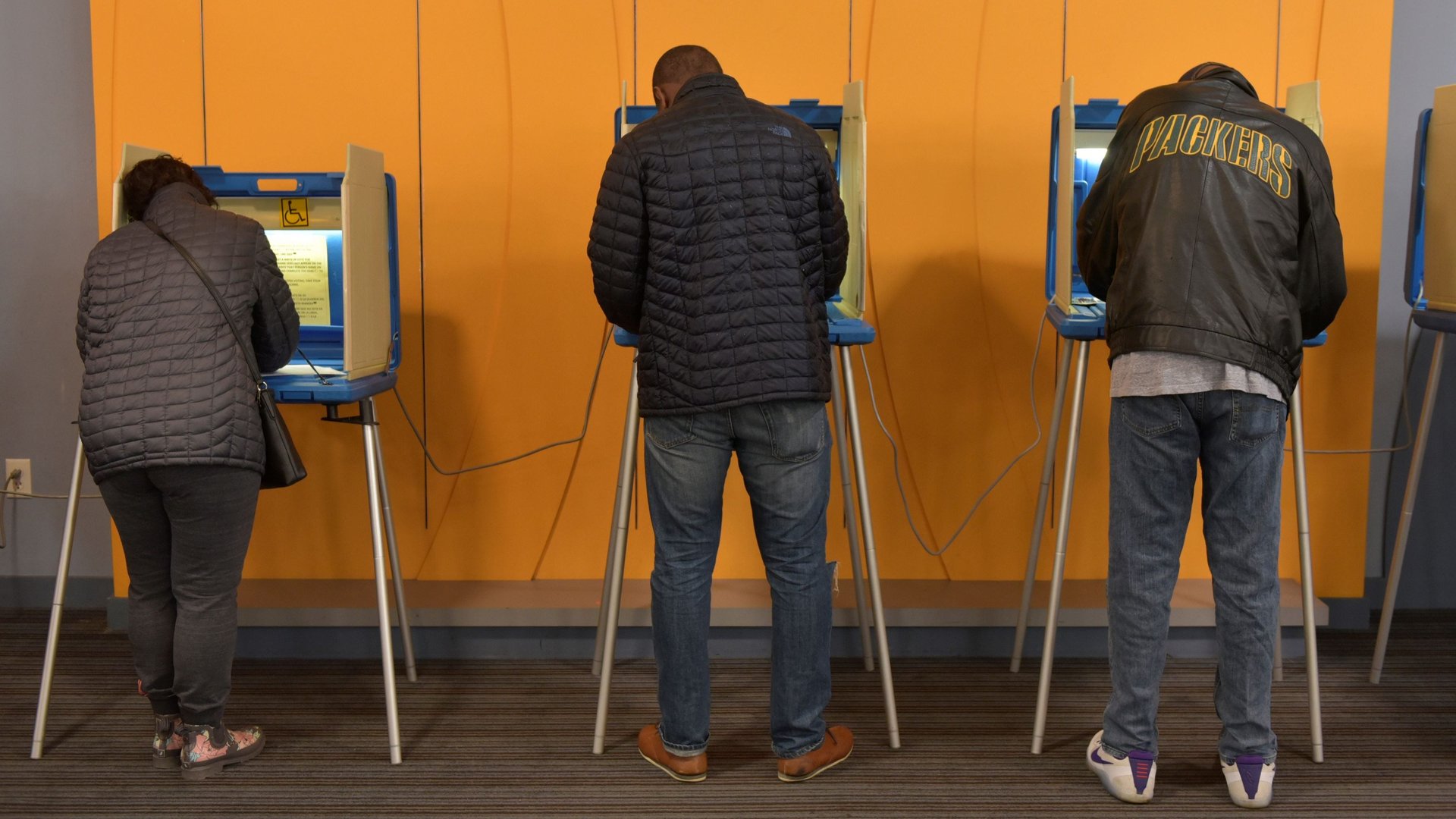The UK’s electoral system is a disaster for democracy
In the UK’s general election on Thursday, the Conservative party romped to victory. It now holds a majority of the country’s parliament by about 80 seats. Prime minister Boris Johnson has already called the victory a mandate for a swift Brexit.


In the UK’s general election on Thursday, the Conservative party romped to victory. It now holds a majority of the country’s parliament by about 80 seats. Prime minister Boris Johnson has already called the victory a mandate for a swift Brexit.
But the stunning win belies the mood of the country as a whole—more than 50% of UK voters actually voted for a pro-Remain party—and ultimately stands as an example of why the UK needs to reevaluate its electoral system.
At the moment, in a nutshell, voters go to the polls to elect a local MP for their geographic constituency. The party with the most local MPs, or seats, wins. Some constituencies have about 100,000 voters or more, others have as few as 20,000. But no matter the population size of constituency, they still each get one seat. The candidate with the most votes wins that seat, while the other votes are essentially tossed aside. As a result, it’s actually possible for a majority of voters to choose a party that ultimately fails to win a majority of seats.
The present system, writes Stephen Bush in the New Statesman, “discards the votes of most people in the UK, but can’t keep up its end of the bargain by reliably delivering majority government even when one party is palpably ahead.” In the four elections since 2010, half have produced hung parliaments, where no single party had a majority. And in this election, despite receiving just 1.2% more of the popular vote, the Conservative party managed a huge swing of 48 seats (out of 650) compared to the last election.
Britain has attempted electoral reform in the past. Most recently, in 2011, voters went to the polls to decide on a proposed switch from the current system to an “alternative vote” system, known as AV, which relies on proportional instant-runoff voting. In that system, voters rank their candidates in order of preference. But the motion was overwhelming defeated. Only 32.1% of Britons voted in favor of it.
The new system’s poor showing was at least partly due to effective lobbying by conservatives. Right-wing British newspapers—among them the Sun, the Daily Mail, The Times, the Daily Express and The Daily Telegraph— all loudly opposed the change, deriding the system as confusing and undemocratic. David Cameron, then the prime minister and leader of the Conservative party, also campaigned against it. He famously labeled AV “undemocratic, obscure, unfair and crazy.”
With Johnson at the helm and benefitting from the current system at least in this round, it’s unlikely the UK will move toward electoral reform any time soon.
Minority parties such as the Liberal Democrats, the Green party, and the now-obsolete UKIP have all suffered disproportionately under the system. Despite receiving 7.4% of the vote in 2017, for instance, the Liberal Democrats walked away with just 12 seats, or 1.8% of the total. And while in 2017 more than half a million people voted for the Green party, or 1.6% of total voters, the party won just one seat, or 0.2% of the total 650. In this election, the Lib Dems saw an upward swing of about 4%, but actually lost a seat.
Perhaps the greatest example of the system’s inability to accurately represent the desires of the electorate came in 2015, when 12.6% of voters cast their ballots for the pro-Brexit UKIP. Because these voters were spread across the UK, rather than concentrated in a few electorates, the party received one seat out of 650, instead of the 82 they might have received with a more proportional system.
The vagaries of the system also introduce far more randomness than the UK’s major parties should be willing to stomach. In 2005, the Labour party’s 2% lead gave it 66 seats, or about 11% of the total. All through this week, polls suggested that a hung parliament was still a very real possibility. A minority of votes may have translated to a majority government for the Tories this time around, but there is no guarantee that be the case next time—especially with some constituencies falling to the Tories by tiny margins.
Other than their pledge to eliminate rules that makes elections compulsory every five years, reforming how Britain goes to the polls is likely the last thing on the Conservatives’ minds. But voters of all stripes should be pushing for change, or risk the very real possibility—as Lib Dem voters found this election—that their voices will not be heard.